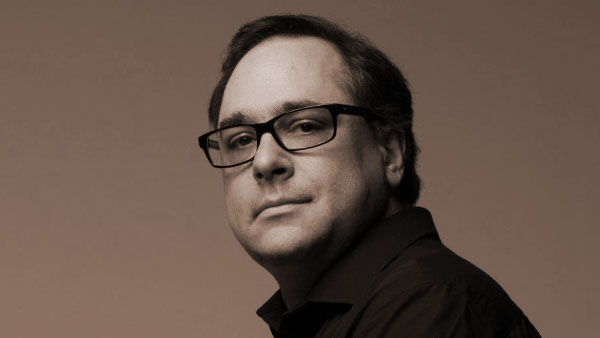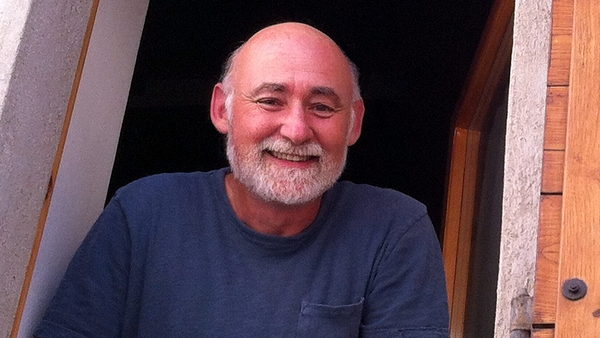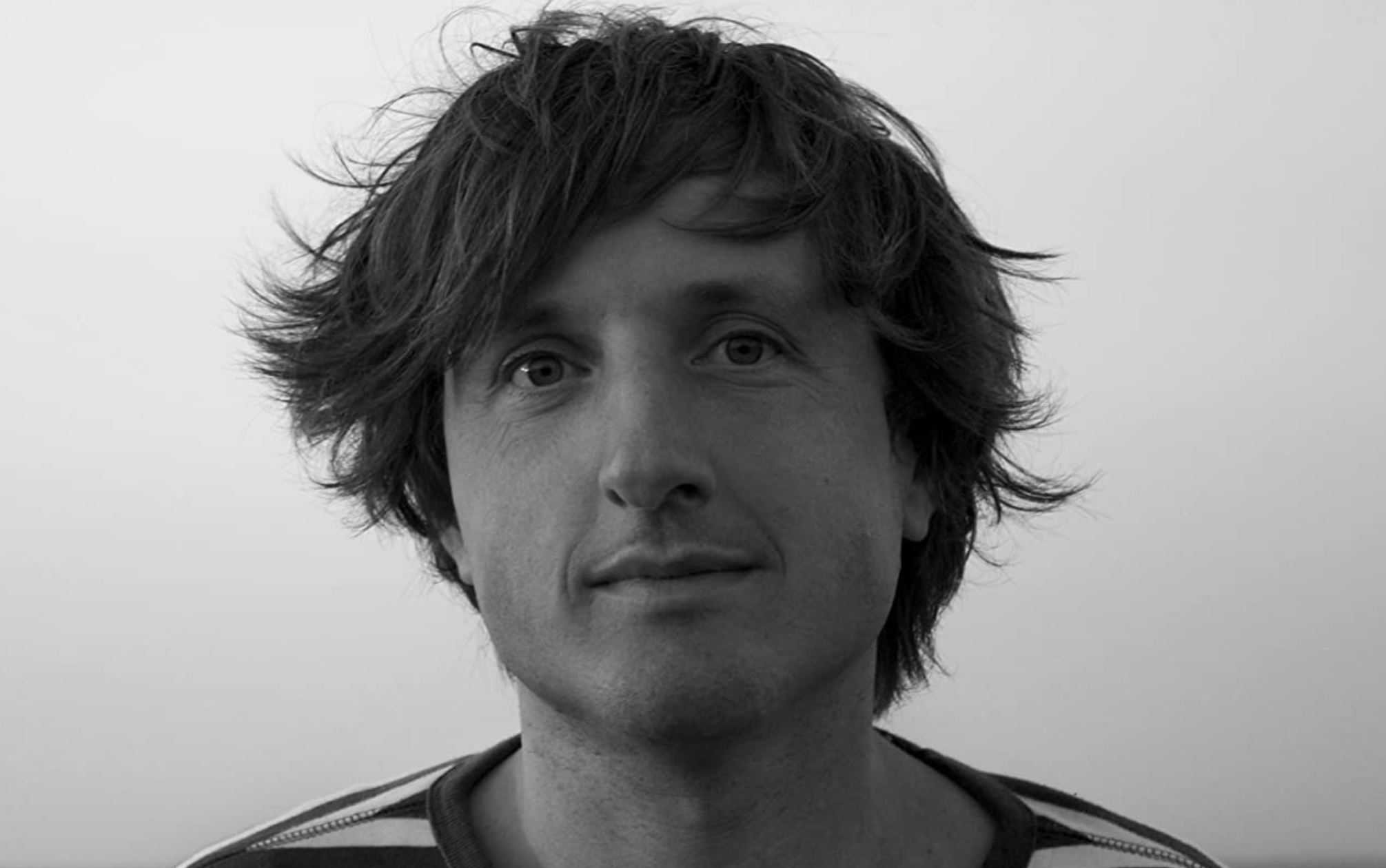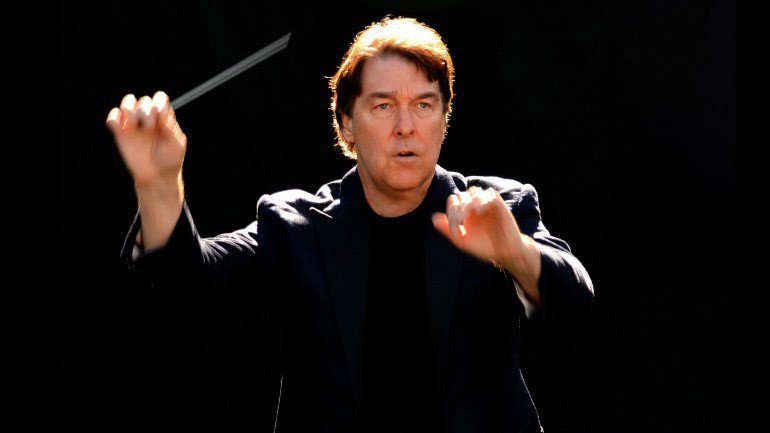
Next month, the San Diego Symphony will put on a live–to-picture performance of Galaxy Quest, the classic sci-fi comedy from 1999 starring Tim Allen, Alan Rickman, Sigourney Weaver, Sam Rockwell and Tony Shaloub. What’s that you ask? Why would a symphony play the music to a comedy? Well, two reasons: One, it’s really great music to a really fun film. Two, it’s really great music written by David Newman.
These days, orchestras know they have to inclusive – they can’t be exclusive – and there’s no benefit to being closed-minded. Orchestras used to just play the same canonical works, but now they have really embraced the popularity and the artistry of the music written for film. After all, it’s like Erich Kornold said, “Music is music whether it is for the movie theater or the concert hall.”
If you hadn’t noticed, it is an ever-growing trend. Earlier this year, we spoke to Don Davis about his time on The Matrix and both the fun and challenges of taking that score to the symphony hall. And, over the years, we were honored to sit with James Newton Howard and Michael Giacchino when they brought their music to the Dallas Symphony.
Ahead of the Galaxy Quest performance, we spent some time with Newman to get an idea of what to expect. In our interview, Newman shared stories about the project, and the elements of the score which he is most fond of. We also got a little info about the Galaxy Quest TV show that almost happened. Enjoy!
GoSeeTalk: You’ve done a lot of conducting in your career, but are there differences between this concert and the Hollywood in Vienna events? I’m a big fan of what you did for the James Horner tribute.
David Newman: For anyone who grew up studying music, Vienna is a mecca. It’s an enormous draw and has great halls and great orchestras. There was a whole team behind that event, and it’s much different from a live concert because it’s a televised event. We do a dress rehearsal with cameras so there are two run-throughs worth of footage to edit together.
But James and I are both from L.A., and I knew him from when we were kids starting out. Our history goes back years and years ago, and we both came through the Hollywood system together. I didn’t have a say in the selections, and the scores that I loved weren’t played very much. I think Braveheart is one of the best scores of the 20th century, particularly the end title. I know James’ work really well, and it was really fun to work on, but I can’t take credit. That’s a whole machine that does the work putting it together. I have done three concerts with that organization. James’ concert was the second, and the third had me conducting for Randy Newman.
It’s amazing how many live-to-picture performances that have sprung up in the last 10 to 15 years. It’s a phenomenon. I spoke to Don Davis about The Matrix and Richard Kaufman has conducted so many film events from Casablanca to Pirates of the Caribbean. Galaxy Quest has a real heart and soul and what you gave to that is immeasurable. What’s been the most exciting part of this for you taking your work from screen to stage? Is there anything that you have to adapt for this concert?
The experience of the live movie is watching the movie in a concert hall, and the effects will be mixed with the live performers, and it’s balanced a little differently. But Galaxy Quest was a really special project from the beginning, and DreamWorks really didn’t understand the movie. Dean Parisot and Don Zimmerman were the director and editor respectively, but it was Jeff Carson, the music editor, who got me on the project.
We did the score in a vacuum and no one really told us what to do. It seemed so obvious to us what it was. It’s a very nuanced movie and that’s very hard to pull off. We scored it pretty seriously, and it is very heart-felt, but it still has to be funny. The music has to allow for humor, and sometimes that’s also really hard to do. Galaxy Quest came easy to us because there was so little interference with it. That really is a movie made for the four of us. We really got to do what we wanted with it.
My wife, Krystyna, is a co-producer of the score. We thought that this is a good companion to a Star Trek or Star Wars movie. At the time, there was really nothing like it, especially as a comedy/parody. It’s so faithful to the idea of the unintentionally humorous parts of Star Trek, although there was a lot of intentioned humor in there from the beginning. We’re premiering in July so we’ll see how it goes.
I think the world needs this. It’s one of those films where the brilliance exists in seeing it for the first time, but you reap so many rewards revisiting it again and again. It really does get better with each viewing.
It is a very densely nuanced film in terms of being a light-hearted satire, but at the same time, it’s so smart. You do see more things as you go in again and again. That’s what made it a joy to write music for, especially the last third of the movie. It’s so much fun and that whole sequence with the kids where they are helping the crew is just so crazy and wonderful because it goes into escapist fantasy like, “what if this really was real?”. It also gets dark, but it’s so tongue-in-cheek and the difficult thing is not taking the music too much in any one direction. It’s quirky and funny, and the art of it is trying to figure out what your through line will be from beginning to end.
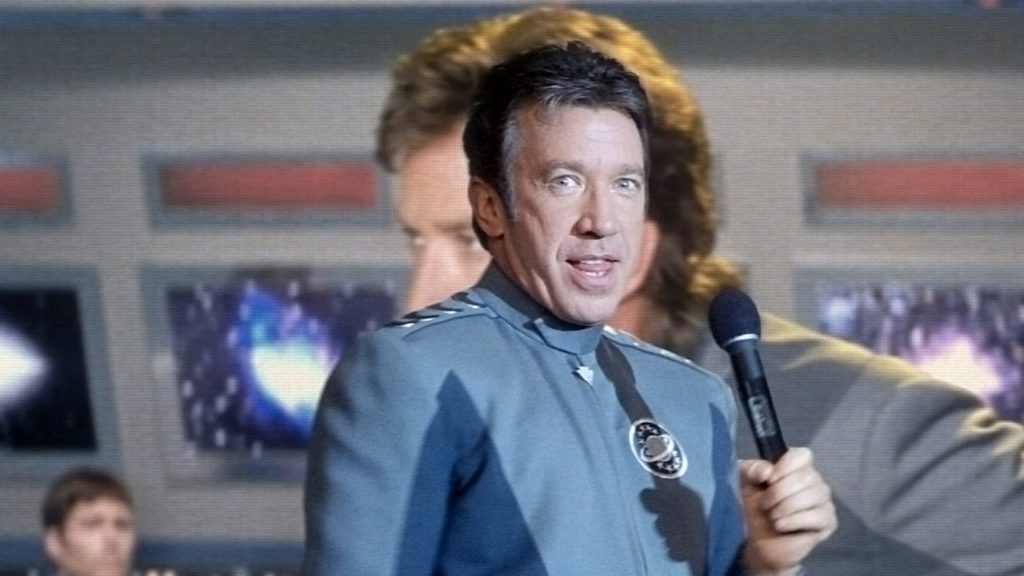
Once you get a good theme, is the hard work pretty much done? You take your main theme and run it through a multitude of variations. They all work so well with the events playing on screen.
Well, now there is no theme. Contemporary film music doesn’t want themes. At that time, yes, the first thing we did was work out the theme which came almost instantly. It wasn’t even an issue. I scored Serenity, Joss Whedon’s film, which was an off-shoot from the Firefly TV series, and I think I did 15 or 16 versions of the main title before we hit on it. But with Galaxy Quest, it was the very first thing I hit on.
Actually, we did two versions. One was a parody of the original Star Trek theme, with the vocals and the bossa nova elements that Sandy Courage wrote, and the other was the theme that got in the movie – the straight-ahead, “heroic” theme. And that was it. It took one second to play it for Dean and that was it. There’s a lot of other music in the film that’s derived from that. But you can’t really do that now.
Why is that? I’ve been told that themes are not as prominent as they were, so what’s the current mindset?
If you study this sort of thing, scores are very unthematic now. There are some references to themes here and there, but generally the zeitgeist is that “I don’t want a theme. I don’t want to lead the audience in any way with the music.” It really exists in another universe.
Pun intended?
[Laughs] Yeah! But it wasn’t that long ago. The movie came out in 1999, but after 2000, and after 2010, it really changed such that scores would not be thematic.
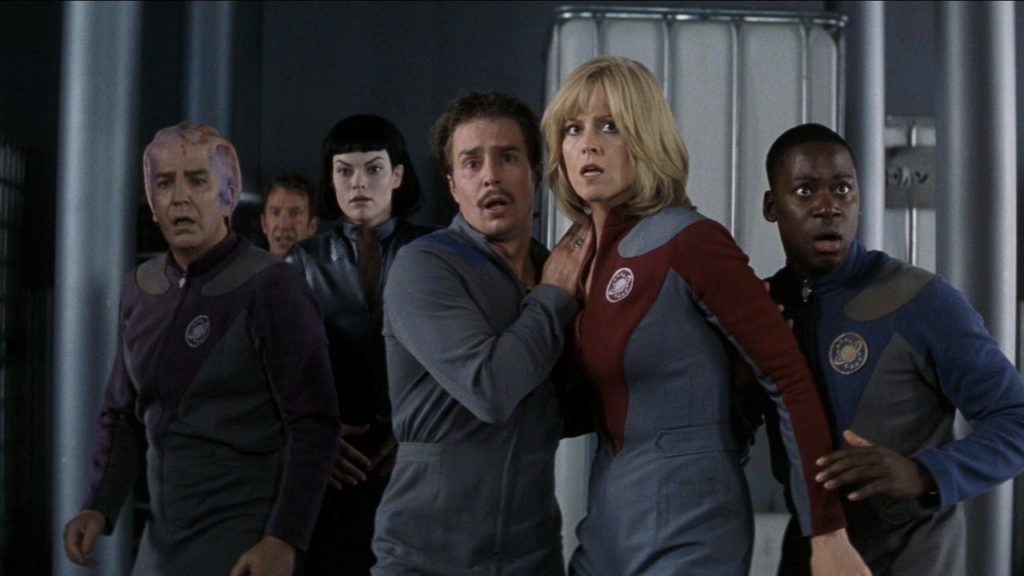
I had heard the team at La-La Land Records echo that, yet when I spoke with Benjamin Wallfisch, he said that he’d never been asked to not do a theme.
Well, I’ll clarify. They all ask composers to write themes, but they don’t want a theme that has an A section, and a B section, and an A section to be like the chorus of a song. That’s the kind of thing you’d get from Jerry Goldsmith and John Williams. I’m not saying that nothing has a theme, and, certainly, everyone has their own experience. But, in general, it is not a thematic based art form. It’s in a cycle right now.
Speaking of Williams, a changing musical climate sounds similar to the era right before he wrote Star Wars.
If you’re a student of film music, you can trace this profession back to talking films and see all kinds of disruptions that advanced film music beyond its inception. The Hollywood Golden Age was personified by Alfred Newman and Max Steiner, and it moved to the much smaller orchestra with Elmer Bernstein with To Kill A Mockingbird or Henry Mancini with The Pink Panther movies, and on to all the kind of ’60 esoteric modernist scores, then to 1977 with Star Wars when it changes again. Then you get to the Hans Zimmer/Danny Elfman era of the ‘90s which then takes us to where we are today. It’s not unusual, and the industry is not even 100 years old.
When you think about how disruptive film is as an art form, it’s hard for us to put ourselves in that space in 1929/1930 when there was no talking film and then, all of a sudden, there’s talking pictures, and the audiences are like, “what is this?” Now, it’s a commercial art form.
I guess you could say that opera was a commercial art form in Italy, but not like this where something could instantly be seen around the world as many times as someone would want to see it. So Galaxy Quest exists at the end of the Star Wars/Star Trek kind of era.
Like you said, you re-visit the stuff as you get older and you see all these elements in a new light. Not that you didn’t like the movie, but because of your life experience, it takes on a different feeling.
How does that translate to the concert with the live performers?
One of the things I really like about the live-to-picture phenomenon is that it’s a way to re-interpret movies and, obviously, the music. But with the music, where would you see Galaxy Quest with an audience, much less with a live orchestra? So it has a large sense of re-interpretation which is kind of what orchestra culture is all about. Why are they playing Beethoven symphonies over and over and over again? Well, it’s a product of different generations re-interpreting works of the past. So I think that you are right, it is a phenomenon, but if you follow the databases that track this, almost every symphony in the world is doing at least one of these a year. It draws people in and it’s an American art form.
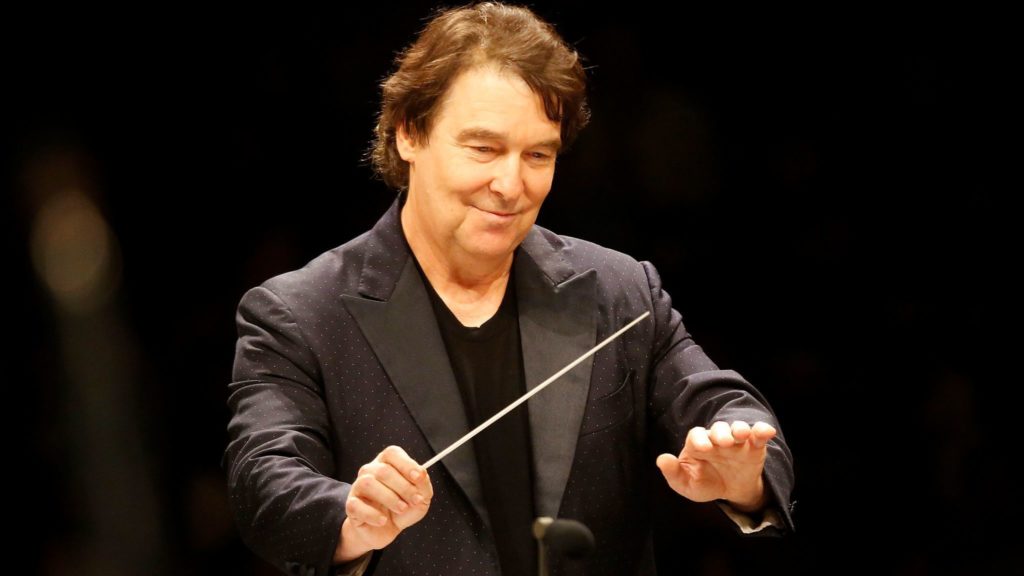
I go to a lot of concerts at the Dallas Symphony, and I’m always amazed watching the players. Countless times I find myself going, “oh, it’s that instrument making that sound.”
I think most people’s relationship to that comes from film. Billions of people have seen films way more than they have been to a concert. In most of films, up to a certain point and even to today, a 19th century symphonic orchestra is used – the same orchestra that Mahler would have used. Now we have samples and digital enhancements, but it’s still basically the same thing.
So when you go and see Star Wars, it’s a late 19th century size orchestra. Most of us have seen the film over and over again, so film goers have heard symphonic music, they just don’t know it. That’s what’s very satisfying about these concerts: you go and sit down, you hear music you are familiar with, and you get comfortable because it’s not so intimidating if you’ve never been. I think that orchestras view that as positive.
Well, historically, film music was looked down upon, right?
Exactly right. The arts community had all kinds of criticism towards it. Their biggest complaint was that it wasn’t artistic, but it is. You can’t know that unless you hear it in its context – it’s not written to be sat down and listened to. Some of it does work in concert without the film, but it’s written to be played in conjunction with a drama, or a comedy, etc.
I have so many favorites that I listen to and could care less about watching the film ever again. But some lose their impact because you’re lacking the visual component. It’s funny how it plays out.
You’re right, but again, it’s not written that way. It’s just by luck that it works out. No one is thinking, “how is this going to sound in a concert hall?” when you’re writing for the movie. You’re too busy trying to get the director to approve your cue so you can move on and have a career. [Laughs] John Williams was this force because of Jaws and Star Wars, and then he went to the Boston Pops. That was 1980, and that’s when all the orchestras in the world hated playing film music. They thought it was awful. But he, little by little, because he’s so famous, does things for PBS and does hit after hit after hit, and now we are where we are. It’s a long time removed from that, but from 2010 on, these performances have grown exponentially.
John Williams came out of the end of the Golden Age which went until 1959. He started at Fox with my father, Alfred Newman, as a pianist and he bridges these two eras. There were really big composers who said awful things about film music in the ‘30s, ‘40s, and the ‘50s. Without even listening to it, they just called it crap. And all film composers probably all felt that in some way – they all had a chip on their shoulder. But now look where we are.
A lot of that is credited to Williams’ endurance in staying with the Boston Pops for twelve years. And he still does something every year in Tanglewood and Boston. [Laughs] That’s off the subject from Galaxy Quest, but it’s part of why this is even happening now. It’s the slow matriculation of this as an art form.
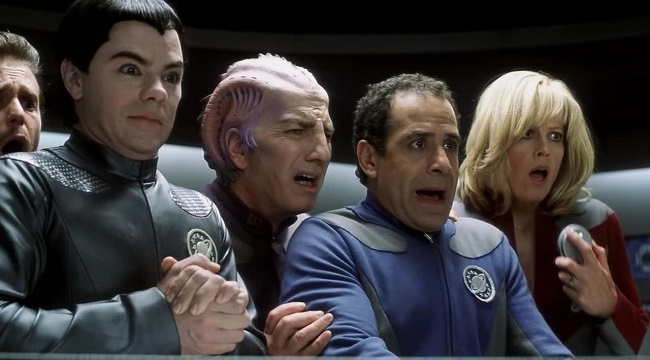
I’m glad that Galaxy Quest is becoming part of this new tide. The theme is the soul of the film, but what really helps the music shine are the variations. But then you compliment that with the chorus to amazing results. Why does that have such resonance?
It’s a woman’s chorus, and I can’t tell you why it works so well, but it just does! The men’s chorus was too dark for the film. It just didn’t work, but we wanted a chorus because it gives us a certain heavenly quality. It gives it a lightness that comes across like another instrument – they’re not singing any words. Sometimes it’s in three part harmony, sometimes it’s in unison, but it’s in a lot of the film and I think it’s a big part of the color and texture of the film. I think it helps give it a soul like you said, but the most important thing the score achieved is that it allowed you to laugh.
It’s not like we tried to make the music funny, because that hardly ever works, but you allow people to laugh and you’d be surprised what music can do to direct that. Not that you’re making them laugh, or helping them laugh, you just don’t want to prevent them from laughing. The women’s choir checked a lot of important boxes for me. It had an ethereal quality as well as the emotion and color we needed.
There are a lot of dark things in this film, but what we hit on very early is that we weren’t going to score this extremely realistically and seriously as we would have done a film of that era. The film is funny right in the middle of something important or dramatic. It just comes zinging out – pretty much everything Alan Rickman says is just gold.
Galaxy Quest has a lot in common with another film you scored, Bill & Ted’s Excellent Adventure. In the liner notes of that vinyl release, you talked about the film having a sweetness which was rare. Comedies these days seem like they’re just a series of insults.
Bill & Ted was a really, really difficult film to do. Nobody understood that film. It was my third film with Steve Herek and that had a tortured post-production which is a whole other story. No one understood the sweetness of those guys. It didn’t really read that way. Maybe sweet isn’t the right word, but there’s a quality to Reeves and Winter at that age and their chemistry and their performance, and they really had a take on the movie.
There’s more comedy in that score than in Galaxy Quest, but it’s like a problem you have to work out: How do you make it exciting and fun with some danger, but not heavy, but then also emotional without being syrupy? It’s a prototype for nearly every Bro-themed film since then. I think it spawned Wayne’s World which was basically a take-off of Bill & Ted. Then you have all the Judd Apatow movies. It all ties back to Bill & Ted. What that movie has is two characters that genuinely care about each other, and understand each other. And they’re idiots [Laughs] but it’s out of a different era.
So Bill & Ted got a sequel, with another one on the way 30 years after the first. Could you have ever imagined a new Bill & Ted, and not another Galaxy Quest? Seems like a TV show would have been the obvious way to ride out the popularity of that ending.
I don’t know if you know this, but we almost did a Galaxy Quest TV show, and this was before The Orville. It was all lined up to do for Netflix, but sadly we lost Alan Rickman. After that, it all just fell apart. Bill & Ted 3 has been trying to get made for years, and now the culture is such that with everything being a remake, why not remake it? And you know who’s directing it? Dean Parisot, the director of Galaxy Quest.
So are you phone call away then? You scored Bogus Journey as well.
It just depends. We’re all talking, so we’ll see. The current climate for film scores comes down to two extremes: you have almost no money, or you have $400 million and you’re Marvel Studios. There’s no middle class now except in television. Yes, I did the second film. I loved the score to the second film but it wasn’t the same kind of movie. There were really giant set pieces, and you have them go to Hell and then Heaven and I had a blast, but Steve Herek didn’t direct it and it was a bit of a committee experience if I recall.
Did you work with Steve Vai directly on that, or did he contribute autonomously?
There was a lot of stuff done on that movie that was done in silos and very ad hoc, but I’ve become very friendly with Steve and if we do the third one, I’d love to use him. We’ve actually become friends. We did some of his music in this orchestra that we have in Los Angeles called the American Youth Symphony and my wife and I are on the board. He also did a whole concert at Disney Hall last year that was great. I think he did four or five, actually. But I’d love to have him do the next Bill & Ted, and have him as part of the score, not just soloing. Wishful thinking, but we’ll see.
Thanks to David for his time. This concert takes place at Copley Symphony Hall, Jacobs Music Center. If you’re a fan of Galaxy Quest, or are in the area and want to have a great time at the symphony, click here to get tickets to the show. Never give up, never surrender!
